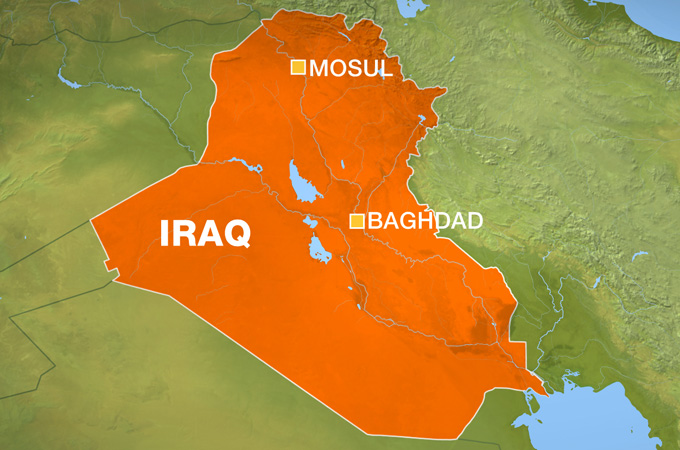Scores killed in Iraq bombings
Suspected sectarian attacks in country’s north followed by car bombs in Baghdad province leave at least 60 people dead.

A series of car bombs has hit Baghdad province, killing at least 44 people, while 22 died in other attacks, including two suicide bombings in northern Iraq, officials say.
Eleven car bombs exploded in eight areas in and around the Iraqi capital on Thursday, killing at least 44 people and wounding more than 120, officials said.
More attacks, including two suicide bombings, were carried out in northern Iraq.
One suicide bomber detonated a vehicle rigged with explosives in a residential area of Al-Muwaffaqiyah, a village east of Mosul that is mainly populated by members of the Shabak minority, killing 15 people and wounding 50.
Another bomber, wearing police uniform, detonated an explosives belt in a cafe in the town of Tuz Khurmatu, killing four people and wounding 27.
Another bomb exploded near the house of a Shabak family in Mosul itself, killing a child and wounding three people, while assailants killed one policeman and wounded a second in an attack in the city and killed another to its south.
 |
The 30,000-strong Shabak community mostly live in a pocket of villages east of Mosul.
They speak a distinct language and traditionally practise a blend of Shia Islam and local beliefs, which has made them a target for attack by armed groups who regard them as heretics.
Last month, a suicide bomber targeted a Shabak funeral near Mosul, killing 26 people and wounding 46.
Nickolay Mladenov, the UN envoy, issued a statement condemning the attack in Al-Muwaffaqiyah “in the strongest terms,” saying “the United Nations pays particular attention to the protection of minority communities who continue suffering from heinous attacks, economic and social barriers”.
Violence worsened sharply after security forces stormed a Sunni protest camp in northern Iraq on April 23, setting off clashes in which dozens died.
The bloodshed, which has included sectarian attacks, has raised fears of a relapse into the intense sectarian bloodshed that killed tens of thousands of people during 2006-2007.
Analysts say the Shia-led government’s failure to address the grievances of Iraq’s Sunni Arab minority – which complains of political exclusion and abuses by security forces – has driven the surge in unrest this year.
With the latest attack, more than 370 people have been killed so far this month, and more than 5,050 since the beginning of the year, according to AFP figures based on security and medical sources.